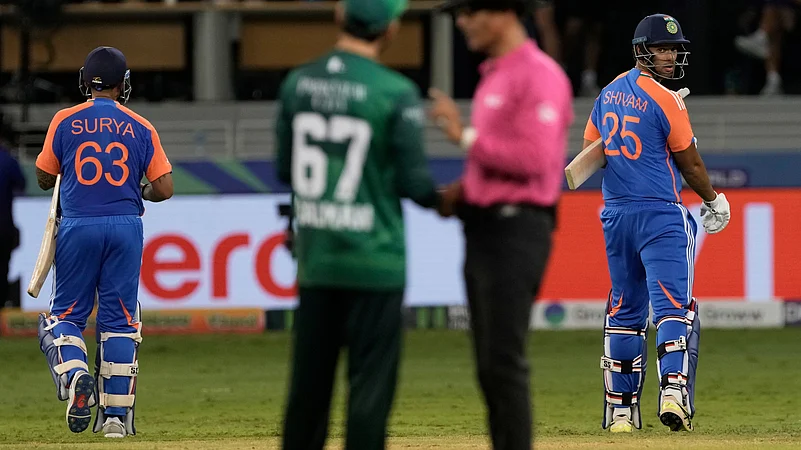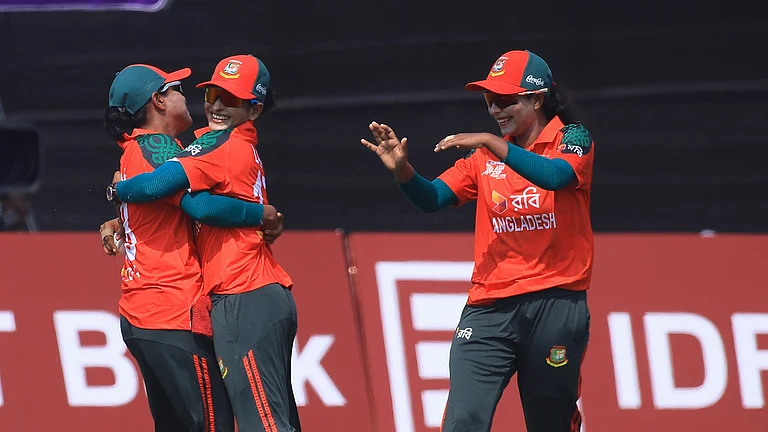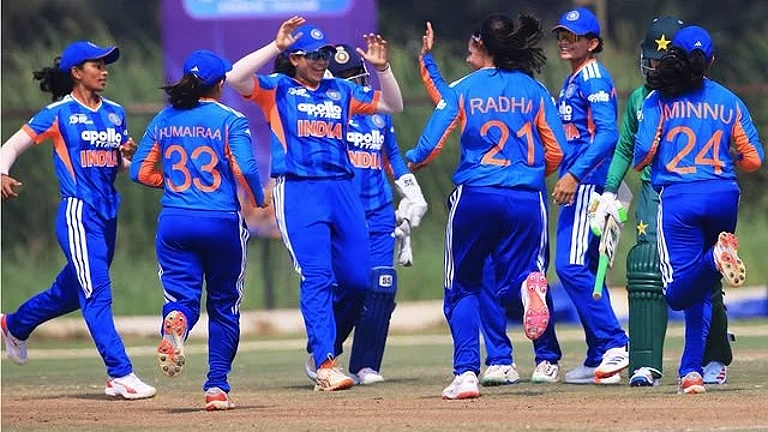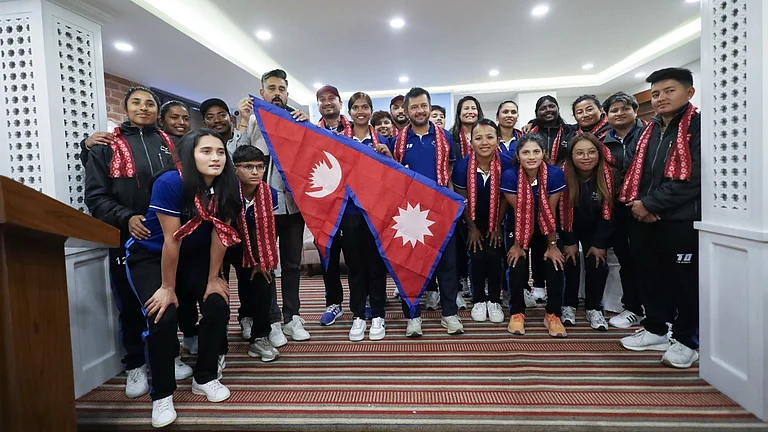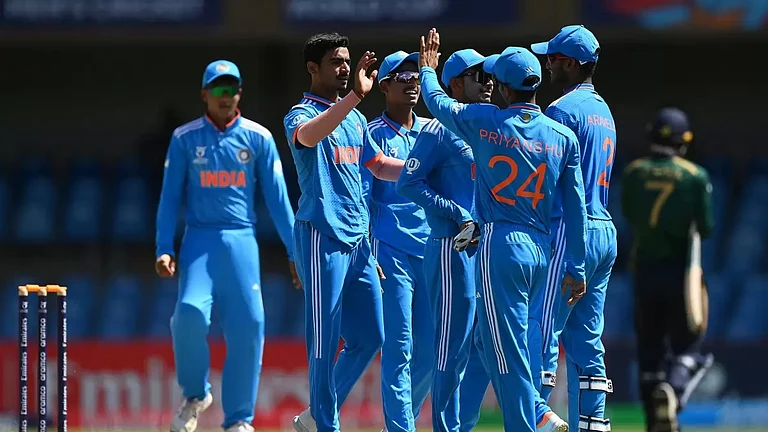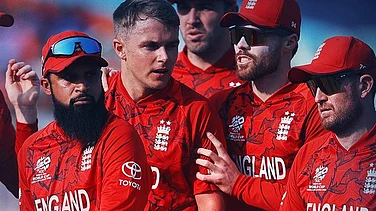
Summary of this article
India avoided customary handshake with Pakistan at Asia Cup 2025
Pakistan cricket board (PCB) has lodged formal protest
ICC rules say handshakes are optional, not mandatory
Global precedents include Ukrainians refusing handshakes with Russians and Belarusians
The highly anticipated India vs Pakistan cricket match at the Asia Cup 2025 in Dubai, UAE, ended not just with India's emphatic seven-wicket victory, but also with a notable absence of the customary handshake.
Suryakumar Yadav, captain of the Indian cricket team, led his teammates off the field in silence after declining the traditional gesture. This move was a direct response to the Pahalgam terror attack earlier in the year, serving as a show of solidarity with the victims and the armed forces of India.
Pakistan's cricket board (PCB) has lodged a formal protest, labelling the act as unsportsmanlike conduct. For the Indian team, the decision was a statement that certain issues transcend the boundaries of cricket and sportsmanship.
The India-Pakistan 'no handshake' controversy is dramatic, of course, but it's far from unprecedented. Asia Cup itself has experienced boycotts in 1986, when India withdrew from the Sri Lanka-hosted tournament due to political differences, and in 1990, when Pakistan refused to participate in the India-hosted event over strained diplomatic ties. The 1993 edition, in fact, was entirely cancelled.
The Dubai row is the latest example of 'sportsmanship' clashing with geopolitics and personal choices. Sporting events continue to witness defiance, symbolic or otherwise, and these are loaded with meaning which requires interpretation of one's own.
With that, here's a look at a few previous instances when sportsmanship took a backseat.
Historic Handshake Snubs: Sports, Protest, And Symbolism
The Asia Cup 2025 handshake snub is not an isolated event in the world of sports. Throughout history, athletes and teams have used the handshake, or the refusal of it, as a powerful symbol of protest, defiance, or personal conviction.
For example, post-Russia's invasion of Ukraine in 2022, Ukrainian athletes have consistently refused to shake hands with Russian and Belarusian opponents. Tennis star Elina Svitolina and fencer Olga Kharlan offered alternative gestures, such as racket taps or blade touches, instead of handshakes.
Kharlan's refusal to shake hands with Russian fencer Anna Smirnova at the 2023 World Fencing Championships led to her disqualification, followed by a sit-down protest by Smirnova, and eventual intervention by the International Olympic Committee (IOC), which reinstated Kharlan, acknowledging the emotional significance of the moment.
Similarly, Israeli athletes have faced handshake snubs or outright match withdrawals at global sporting events. At the 2016 Olympics, Egyptian judoka Islam El Shehaby refused to shake hands with Israeli opponent Or Sasson after losing, resulting in reprimand and expulsion by the IOC.
At the Paris Olympics 2024, Algerian judoka Messaoud Redouane Dris was disqualified after failing to meet the weight requirement ahead of his scheduled bout against Israeli opponent Tohar Butbul. Earlier, fellow Algerian judoka Fethi Nourine received a 10-year suspension from the International Judo Federation for withdrawing from a potential match against Butbul at the Tokyo Games, citing political reasons.
Iranian athletes, too, have been barred from competing against Israelis, with Iranian weightlifter Mostafa Rajaei banned for life in 2023 after shaking hands with Israeli competitor Maksim Svirsky at a World Masters event in Poland. The Iranian federation called the act "unforgivable," and reinforced its strict national policy against any contact with Israeli athletes.
Personal And Political: Handshake Drama Across Sports
Beyond geopolitics, handshake snubs have also reflected personal rivalries and dramatic moments in sports history.
American basketball player Dennis Rodman's protests in 1996, including placing his hands down his shorts and gesturing toward referees after a foul call, were more theatrical than political. He was ejected and later suspended for headbutting an official.
In the NBA's 1991 Eastern Conference Finals, the Detroit Pistons walked off without shaking hands with the Chicago Bulls. Pistons' centre Bill Laimbeer claimed it was a response to years of personal insults from the Bulls, while Bulls legend Michael Jordan called it classless. The incident became a defining image of the so-called 'Bad Boys' era in basketball.
In tennis, the rivalry between Serena Williams and Maria Sharapova was marked by formal but distant handshakes, with underlying tension revealed in comments and Sharapova's autobiography. For the record, the popular notion that they didn't shake hands is a misconception. Their interactions remained polite yet devoid of warmth, reflecting a rivalry built on pride and competition.
Other notable moments include the Rugby World Cup 2011 final, where France advanced toward New Zealand's All Blacks during the haka in a V-formation, crossing the halfway line. Les bleus were fined for the gesture, but many saw it as a powerful act of defiance.
In the English Premier League, Wayne Bridge refused to shake John Terry's hand before a Chelsea vs Manchester City match in 2010, following personal allegations. Bridge later remarked that the snub overshadowed his football career, demonstrating how such moments can resonate far beyond the field.
India Vs Pakistan, Asia Cup 2025 Controversy: Will SKY & Co. Face Disciplinary Action?
The International Cricket Council (ICC) regulations state that post-match handshakes are considered a goodwill gesture rather than a mandatory requirement, with the Preamble to the Spirit of Cricket noting players should "thank the officials and your opposition at the end of the match" as convention but not law.
In the wake of the IND vs PAK no handshake row, a senior Indian cricket board (BCCI) official confirmed that there is "no specification about shaking hands with the opposition" in the rulebook.
While Article 2.1.1 of the ICC Code of Conduct lists "conduct contrary to the spirit of the game" as a Level 1 offence potentially punishable with a fine of up to 50 per cent of the match fee, disciplinary action against India is unlikely, as shaking hands isn't mandatory.


